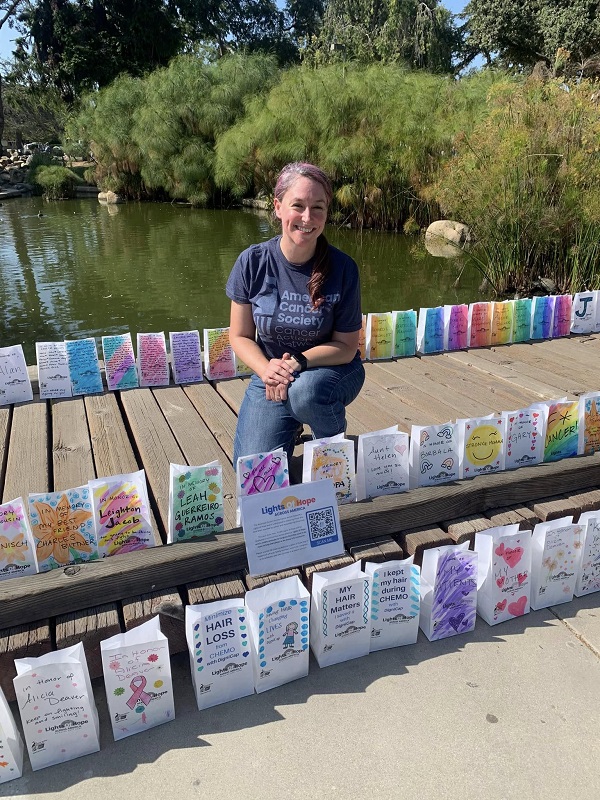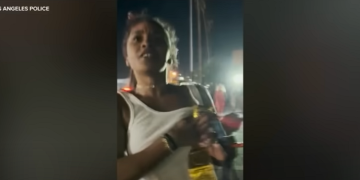
Starting next Monday, August 1, Metro and the city of Los Angeles are adding a new payment option to the popular new Metro Bike Share Program in downtown Los Angeles. Credit cards can now be used to check out a Metro Bike directly from a bike share station throughout the downtown area.
Even better, the regular $3.50 rate will be discounted by 50 percent to just $1.75 per half hour to encourage first-time walk-up users to give the bikes a try. All trips 30 minutes or less will be just $1.75 until October 1. It’s the latest effort by Metro and the city of L.A. to ensure an accessible price structure for all bike share users.
Metro Bikes officially rolled out in downtown on July 7. The system includes over 60 stations and up to 1,000 bicycles. It is now the largest bike share program in L.A. County. The system is designed for short-distance trips that can be too far to walk but too short to drive. Station locations are within a couple blocks of each other and closely linked with Metro transit services, making it easy to combine bicycle and transit trips.
The walk-up option is attractive for people who want to test the system prior to buying a monthly or annual bike share pass on a Metro TAP card. The new option is also ideal for people who want to complete the first and last mile connection to transit, people with short errands or tourists who want an easy, fun and affordable way to experience downtown destinations by bike.
Here’s how it works. Just walk up to a Metro Bike Station, tap the screen, follow the prompts in either English or Spanish, and slide your credit card. Then select your bike, release it from its dock and ride off. The entire process takes less than one minute to complete.
Metro anticipates that the walk-up option will greatly expand use of the new bike share system. Approximately half the rides made on bike share systems in other cities come directly from walk-up sales. Nearly 5,000 bike share rides have been ridden in the downtown area in the last two weeks since launch. These numbers are expected to grow exponentially with the added option of walk-up sales.
The system originally opened only to monthly or annual flex pass holders, in an effort by Metro and city of L.A. to phase in the complex integration of Metro’s TAP fare card, which can also be used to ride Metro Bus and Rail Lines. Metro is the first transit agency in North America to use a single fare card for both transit and bike share. More than 1,600 pass holders have registered to use the bikes since opening.
Users can also download a special Metro Bike Share app available on iOS and Android smart phones that will enable them to buy a pass, check bike availability and find the nearest station to their location, among other features. The app is available at https://bikeshare.metro.net/app/ .
Those interested in riding the bikes on a more regular basis are encouraged to get a monthly or annual pass to take advantage of a lower cost per trip. TAP card passes can be purchased online at www.metro.net/bikeshare.
The Pilot project is the first phase of bike sharing throughout Los Angeles County that could potentially bring up to 4,000 bicycles to communities.
Stay informed by following Metro on The Source and El Pasajero at metro.net, facebook.com/losangelesmetro, twitter.com/metrolosangeles and twitter.com/metroLAalerts and instagram.com/metrolosangeles.
About Metro
The Los Angeles County Metropolitan Transportation Authority (Metro) is unique among the nation’s transportation agencies. Created in 1993, Metro is a multimodal transportation agency that transports about 1.4 million passengers daily on a fleet of 2,200 clean air buses and six rail lines. The agency also oversees bus, rail, highway and other mobility-related building projects and leads transportation planning and programming for Los Angeles County. Through its oversight of one of the largest public works programs in America, Metro is changing the urban landscape of one of the country’s largest, most populous counties.
About LADOT
LADOT is a leader in the planning, design, construction and operations of transportation systems in the City of Los Angeles and partners with sister agencies to improve transportation service and infrastructure in the city and the region.





















